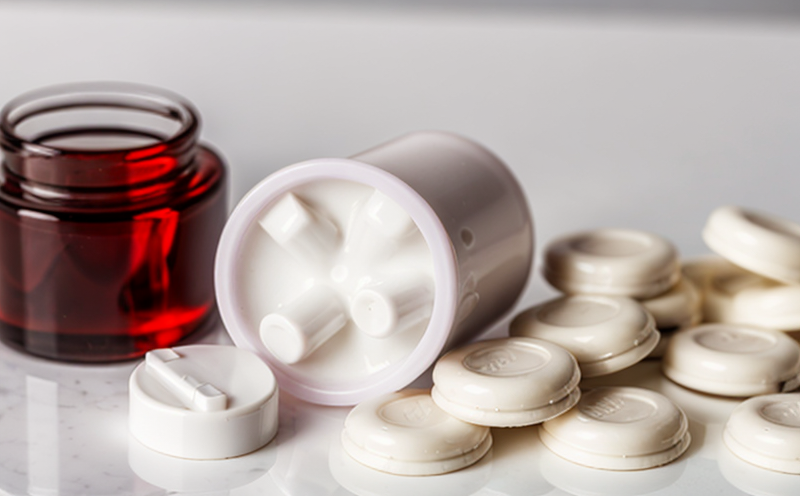USP Stress Condition Testing of Tablets
The United States Pharmacopeia (USP) is a compendium that provides standards for medicine and related health products to ensure their safety, quality, and purity. One crucial aspect within this framework involves the stress condition testing of tablets, which evaluates how tablets perform under extreme conditions intended to simulate real-world stressors during manufacturing, storage, and handling.
Stress condition testing is designed to assess the stability and integrity of oral solid dosage forms such as tablets by subjecting them to various environmental stresses. This includes high humidity, temperature excursions, moisture absorption, and other factors that may affect the tablet's physical properties over time. The primary objective is to ensure product quality and safety by identifying any potential issues early in the development or manufacturing process.
The USP defines specific stress conditions based on industry best practices and scientific evidence to mimic real-world scenarios. These tests are critical for pharmaceutical manufacturers, ensuring that their products meet regulatory requirements and maintain consistent performance throughout their shelf life. By conducting these tests, companies can mitigate risks associated with product degradation and improve overall patient safety.
Typically, stress condition testing involves exposing samples of tablets to controlled conditions designed to accelerate potential deterioration processes. For instance, high humidity levels simulate prolonged exposure to damp environments, while temperature excursions represent rapid changes in ambient temperatures that might occur during transportation or storage.
After undergoing these stress conditions, the tablets undergo rigorous evaluation using various analytical techniques and instruments provided by advanced laboratories. Key parameters measured include hardness, friability, disintegration time, weight variation, and dissolution profile. Each parameter provides valuable insights into the tablet’s structural integrity and functionality after exposure to harsh environmental factors.
Accurate and reliable results from stress condition testing are essential for making informed decisions regarding formulation modifications or process improvements aimed at enhancing product stability. Regulatory bodies like the USP provide detailed guidelines on acceptable limits for each parameter, ensuring uniformity across different manufacturers.
In summary, USP stress condition testing plays a vital role in safeguarding public health by promoting quality assurance measures through comprehensive evaluation of oral solid dosage forms under extreme conditions. This service helps pharmaceutical companies comply with regulatory standards while also enhancing product reliability and patient trust.
Why Choose This Test
Safeguarding public health through rigorous quality assurance measures.
Mitigating risks associated with product degradation during storage or transportation.
Ensuring compliance with stringent regulatory standards set by the USP and other relevant authorities.
Enhancing patient trust and satisfaction through consistent performance of pharmaceutical products.
In selecting this service, clients can rest assured knowing that they are partnering with experts committed to delivering precise and reliable results. Our state-of-the-art facilities utilize cutting-edge technology to conduct thorough testing according to USP guidelines, ensuring accurate outcomes every time.
Customer Impact and Satisfaction
The implementation of USP stress condition testing significantly impacts customer satisfaction by providing confidence in the quality and reliability of pharmaceutical products. Manufacturers who adhere to these stringent tests can expect increased market share due to enhanced product reputation and trust among consumers.
Regular use of this service allows for continuous improvement within manufacturing processes, leading to better outcomes and higher levels of customer satisfaction. By incorporating USP stress condition testing into their quality management systems, companies demonstrate a commitment to excellence that resonates positively with both internal stakeholders and external clients.
Environmental and Sustainability Contributions
Reduction in waste due to fewer batch failures resulting from rigorous testing protocols.
Increased efficiency in manufacturing processes by identifying potential issues early.
Less resource consumption through optimized production techniques informed by thorough testing results.
The emphasis on environmental responsibility extends beyond just reducing waste; it also involves optimizing resource use and minimizing energy consumption. By adhering to USP stress condition testing, laboratories contribute positively towards sustainable practices that benefit both the environment and society at large.





